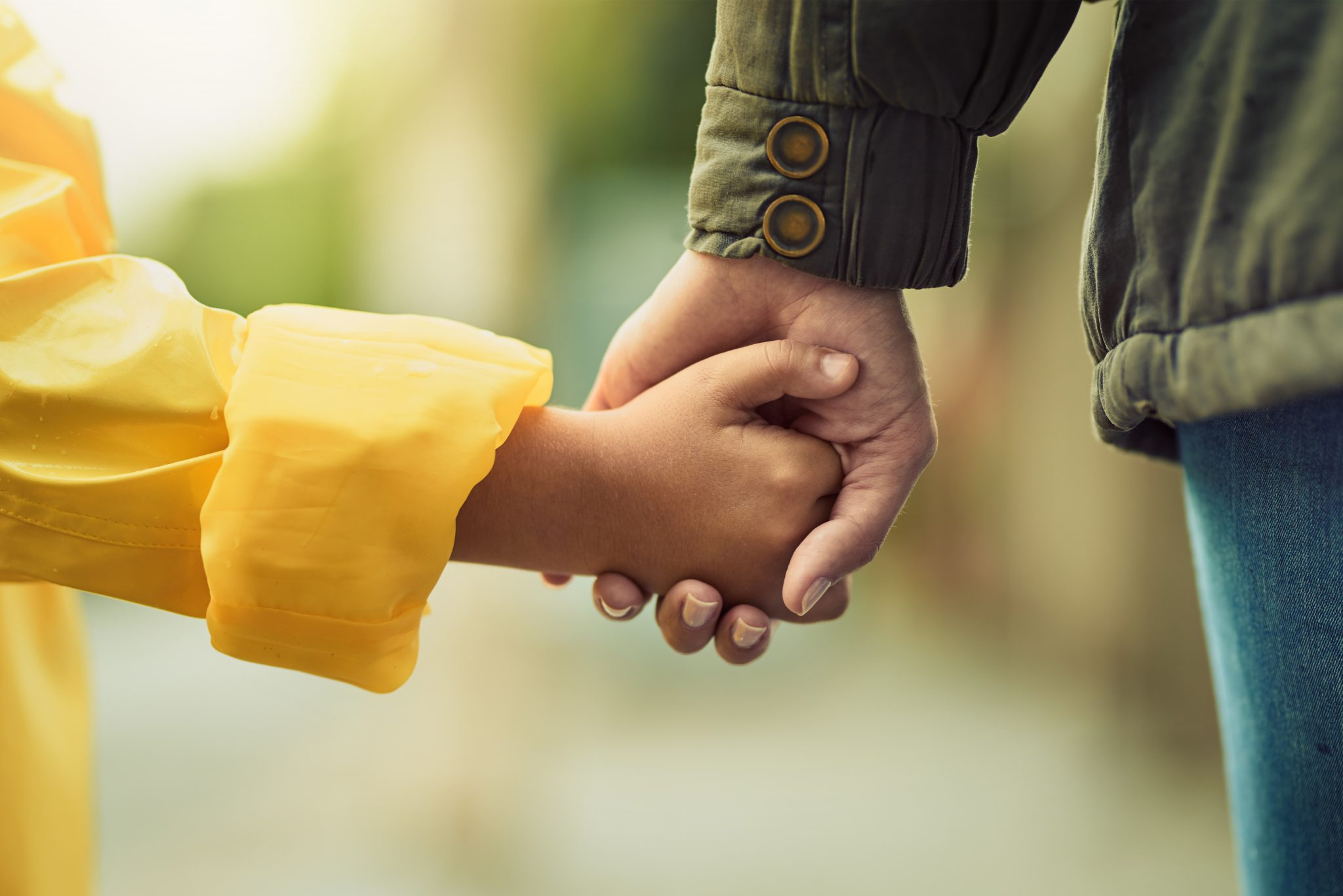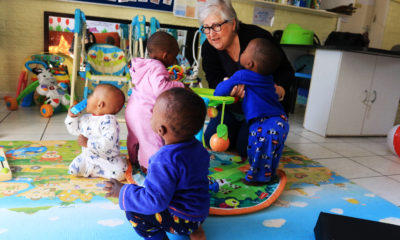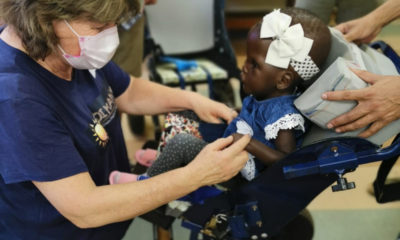
World

Jewish orphans carry hope across the mountains
Published
2 years agoon
As bombs fell around the orphanage, the girls screamed and cried. They had always felt safe in Tikva Children’s Home, but Putin’s invasion stole that from them.
In the dead of night, Odesa Jewish community leaders gathered in the synagogue and decided they had to evacuate the orphans.
Within three hours, 270 boys and girls left behind the very little they had and headed for the mountains. Each carrying a small bag of possessions, they knew they needed to stay calm as they took a harrowing 30-hour journey to safety.
Along the way, they had to keep stopping to evaluate which roads were being bombed. “It was a dangerous and dramatic trip,” says Refael Kruskal, the chief executive of the organisation, who was part of the evacuation entourage.
“In the middle of it all, we had Shabbos. Here we were, 400 people [including adults], crying and saying brachot in the middle of a gas station. It was an amazing experience – uplifting and yet so sad.
“We continued and, 30 hours later, we reached the Carpathian Mountains. We stayed there for a few days and then crossed the border to Romania. We found a place with 800 beds and this is where we will stay until after the war.”
Many of the orphanage’s children have, in their short lives, lived on the street, in state orphanages, in situations of abuse, abandonment and neglect. But seeing bombs falling from the sky and leaving the one place they felt safe was probably their most frightening ordeal.
“At first we thought we would hunker down in Odesa. But when bombs landed very close to the girls’ home, we decided we had to get out,” says Kruskal. “The girls were crying. They were traumatised. We sent a message to everyone to stay home while we decided what to do.
“The leaders of the community met in the synagogue and we decided to evacuate. Within three hours, we left. We told everyone to pack a small bag. It was painful. For these children, this is their home. It’s all they have. It’s their father and mother. It was tearful and difficult.”
But once they were on the buses, “the children were calm, they didn’t cry or complain. It was a difficult, long journey, but they looked after one another. They are resilient and courageous; they’ve been through so much,” says Kruskal.
Tikva is a rescue aid and educational organisation that saves the lives of at-risk Jewish children and relieves the suffering of impoverished Jewish families in Odesa.
The organisation is supported by South African generosity because the Moshal Foundation (officially the JAKAMaR Trust) is one of its most valued sources of funds. “The Moshals have been partners of the Tikva community for many years. They are very generous donors that are involved on a daily basis in financing our search and rescue department,” says Michael Brodman, European relations director at Tikva.
The Moshal family humanitarian foundation was set up by the late doyen of the Durban Jewish community, John Moshal (who died last year), and his wife Anna.
“They have also helped, for many years, with the Moshal scholarship programme for students from our university,” says Brodman. “The Moshal Foundation is more than family to all of us at Tikva.”
Since 1996, Tikva has been on a mission to find Jewish children in need from the southern regions of the former Soviet Union, specifically Ukraine, Moldova, Belarus and Russia. It employs 30 full-time staff members to seek out, document and rescue these destitute children. Last year alone, Tikva found more than 100 indigent and imperilled Jewish children. At least 10 new children are brought in each year.
The Tikva organisation began in 1993 when Rabbi Shlomo Baksht arrived in Odesa to revive Jewish life in this former communist region. Seeking out the remaining Jews, he established a small Jewish school and used educational and social programming to reach and mend this dwindling Jewish community.
While working towards that goal, Baksht discovered the plight of hundreds of local Jewish children suffering abuse and neglect, living on the streets or confined to bleak and often cruel institutional settings. In response, he secured an apartment, removed six Jewish children from a state orphanage and created the first children’s home, the nucleus of what has come to be Tikva.
Today, the organisation has improved the lives of more than 3 000 men, women and children. Thousands of Jewish children, even those living in supportive family settings, go hungry every day in Ukraine. Given the extremely low wages – averaging $50 (R769) a month – and lack of extensive social safety nets such as those in Western Europe, many parents cannot cope and abandon their children out of sheer desperation. It’s estimated that about 2 500 Jewish children are still orphaned or homeless in Ukraine.
Some of these children suffer abuse, spend devastating childhoods in state orphanages, or are at risk because of broken homes and the despair brought on by poverty and hopelessness. These are the children who are rescued by Tikva, where they find an entirely new reality of a loving, supportive environment.
The situation is complicated as many of these children are wards of the state. For that reason, the organisation’s goal is to return to Ukraine when it’s safe. “The idea is to stay here until everything calms down. Yesterday, the heads of many departments in Ukraine called and asked where the children are. And the schools asked how long are they going to stay away,” says Kruskal.
“We said we were over the border and as soon as the war was over we would take them back. They asked if we had any plans to go to Israel – they want us to stay close because they want to make sure the children come back as many of them are wards of the state. We said yes, the children are coming back. We’re staying here, close by, until after the war, and then hopefully we’ll be able to rebuild the amazing communities and homes we have built in Odesa.
“The children have been through a tremendous amount of trauma,” Kruskal says. “At the same time, it’s amazing how resilient they are. When I saw on Friday night, after 30 hours of driving from Ukraine to Romania and waiting at the border and the cold and the difficulties, the kids suddenly singing songs of Shabbat, it was such a moving and emotional moment. Am Yisrael Chai – these kids have the power to fight everything. They have strength to be resilient. They’ve been through so much in life, so much abandonment, so many difficulties, so much hardship. And now the way they help one another, the way they help us; it’s an unbelievable outpouring of strength, which gives me strength. I’m proud to be associated with these wonderful kids.”










